 Have you ever wondered what it would be like to read a book as its written? Or better yet, be able to make suggestions as the book develops and see your ideas help shape the result? Well, here’s your chance. If you’re already a Friend of Frank at my author site, or want to become one, that’s what you’re invited to do. As the book evolves, I'll ask for your advice, and answer any questions you may have. I’ll also give you the inside scoop about how and why each chapter is written as it is. Sound interesting? Great, because I’ve just posted the Prologue and First Chapter below. To read the future chapters for free as they’re posted, all you have to do is become a Friend of Frank.
Have you ever wondered what it would be like to read a book as its written? Or better yet, be able to make suggestions as the book develops and see your ideas help shape the result? Well, here’s your chance. If you’re already a Friend of Frank at my author site, or want to become one, that’s what you’re invited to do. As the book evolves, I'll ask for your advice, and answer any questions you may have. I’ll also give you the inside scoop about how and why each chapter is written as it is. Sound interesting? Great, because I’ve just posted the Prologue and First Chapter below. To read the future chapters for free as they’re posted, all you have to do is become a Friend of Frank.
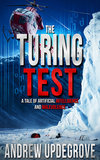 My latest book, The Turing Test is out, and the first reviews are in. Here are a few samples from the reviews (all five star) posted at Amazon so far:
My latest book, The Turing Test is out, and the first reviews are in. Here are a few samples from the reviews (all five star) posted at Amazon so far:
Beyond any shadow of doubt, 'The Turing Test' is a worthy addition to the Frank Adversego series and more than satisfied my every expectation ... For me, 'The Turing Test' is a stealthier creature. It packs its punches in a different but equally effective manner, delivering a terrific tension and suspense that ebbs and flows throughout a lengthy narrative peppered with twists, turns and shocking surprises ...
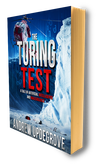 Releasing a new book is always a big deal for an author, no matter how many times it happens. this is the fourth time around for me, and I think The Turing Test, a Tale of Artificial Intelligence and Malevolence, is my best book so far. Happily, my much-esteemed beta readers all agree.
Releasing a new book is always a big deal for an author, no matter how many times it happens. this is the fourth time around for me, and I think The Turing Test, a Tale of Artificial Intelligence and Malevolence, is my best book so far. Happily, my much-esteemed beta readers all agree.
Long time Friends of Frank will also be happy to learn that, unlike the plots of the three preceding books, this one isn’t likely to come true. That is, for awhile.
 So a year and a half ago I wrote a book called The Lafayette Campaign, a Tale of Deception and Elections. In it, a totally ridiculous conservative candidate leaps to the top of the polls, and then wins the nomination. Sound familiar?
Sadly, yes. But wait, there’s more.
So a year and a half ago I wrote a book called The Lafayette Campaign, a Tale of Deception and Elections. In it, a totally ridiculous conservative candidate leaps to the top of the polls, and then wins the nomination. Sound familiar?
Sadly, yes. But wait, there’s more.
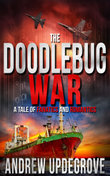 Yesterday was the big day – fifteen months after tapping out the first few words of my latest satirical, political, cybersecurity thriller, I uploaded the files for Frank Adversego’s third world-saving adventure. This time around, the villains are an ISIS-like terrorist group that’s been even more successful at gaining ground in the Mideast.
Now they threaten to bring the Western world to its knees. Like the first two books, everything in the book is technically accurate and could actually happen. Frankly (no pun intended), this book scares the hell out of me. The reason? There seems to me to be little doubt that some day, perhaps as early as tomorrow, just such an attack will actually be launched.
Yesterday was the big day – fifteen months after tapping out the first few words of my latest satirical, political, cybersecurity thriller, I uploaded the files for Frank Adversego’s third world-saving adventure. This time around, the villains are an ISIS-like terrorist group that’s been even more successful at gaining ground in the Mideast.
Now they threaten to bring the Western world to its knees. Like the first two books, everything in the book is technically accurate and could actually happen. Frankly (no pun intended), this book scares the hell out of me. The reason? There seems to me to be little doubt that some day, perhaps as early as tomorrow, just such an attack will actually be launched.
 According to Donald Trump, "the US Presidential Election is rigged!" That's a bit disingenuous coming from The Donald, given that if it's being hacked by anyone, the evidence is that it's being hacked by the Russians. And not for the benefit of Clinton, either. But just how realistic could such a claim be?
Experts agree that trying to pull off such a feat by traditional means (i.e., getting people to vote more than once) is not only not happening, but not even feasible to pull off in sufficient numbers to influence anything but the very closest of elections. But how about if you were to hack the election electronically? How hard would that be?
According to Donald Trump, "the US Presidential Election is rigged!" That's a bit disingenuous coming from The Donald, given that if it's being hacked by anyone, the evidence is that it's being hacked by the Russians. And not for the benefit of Clinton, either. But just how realistic could such a claim be?
Experts agree that trying to pull off such a feat by traditional means (i.e., getting people to vote more than once) is not only not happening, but not even feasible to pull off in sufficient numbers to influence anything but the very closest of elections. But how about if you were to hack the election electronically? How hard would that be?
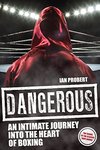 Last week I posted a review of Dangerous, the latest book by mutli-genre author Ian Probert, concluding, “The result is a unique combination of themes and insights that does not attempt to reach any pat solution or heart-warming resolution. Instead, we leave the author and the boxers he has profiled the way we found them – damaged by their life experiences and making the best of the hard-won lessons they have learned along the way, but still entranced by the sport that has by turns served them so well and so dangerously.” This week, I’m following with an interview with the author, in which he tells us how and why the book came about.
Last week I posted a review of Dangerous, the latest book by mutli-genre author Ian Probert, concluding, “The result is a unique combination of themes and insights that does not attempt to reach any pat solution or heart-warming resolution. Instead, we leave the author and the boxers he has profiled the way we found them – damaged by their life experiences and making the best of the hard-won lessons they have learned along the way, but still entranced by the sport that has by turns served them so well and so dangerously.” This week, I’m following with an interview with the author, in which he tells us how and why the book came about.
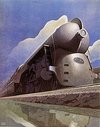 It can be a struggle to reconcile the need to be creative and the need to be disciplined and to set standards when writing a book. Often, the balance of efficiency and spontaneity will be determined by the circumstances under which we write. Strict deadlines necessitate efficient writing processes, whereas passion projects can operate under a looser timeline. Regardless of your purpose for writing, it is difficult to argue against the benefits of streamlining your self-publishing process and increasing your efficiency. You stand to save time which eventually leads to financial savings through increased productivity and greater output.
It can be a struggle to reconcile the need to be creative and the need to be disciplined and to set standards when writing a book. Often, the balance of efficiency and spontaneity will be determined by the circumstances under which we write. Strict deadlines necessitate efficient writing processes, whereas passion projects can operate under a looser timeline. Regardless of your purpose for writing, it is difficult to argue against the benefits of streamlining your self-publishing process and increasing your efficiency. You stand to save time which eventually leads to financial savings through increased productivity and greater output.
 I'm pleased to report that I've finished my last draft of the third book in the Frank Adversego thriller series. It's now in the capable hands of a half dozen Friends of Frank who have kindly agreed to be beta readers. Pre-launch ("beta") readers are a huge asset for to authors, helping them catch not just typos, but all the other sorts of gremlins that can be hard for an author to ferret out and banish because the author has become to immersed in the text to spot them.
I'm pleased to report that I've finished my last draft of the third book in the Frank Adversego thriller series. It's now in the capable hands of a half dozen Friends of Frank who have kindly agreed to be beta readers. Pre-launch ("beta") readers are a huge asset for to authors, helping them catch not just typos, but all the other sorts of gremlins that can be hard for an author to ferret out and banish because the author has become to immersed in the text to spot them.
 In principle, every author (self published or otherwise) should be in favor of diversity and competition in the book distribution marketplace. The reason? Because competition in any area of commerce fosters continuing innovation, more choices, and more price competition. Unfortunately, sometimes a competitive marketplace turns into a monopolized one. When that happens, idealism may have to take a back seat to pragmatism, and an author may have to just make the best of what she’s got.
In principle, every author (self published or otherwise) should be in favor of diversity and competition in the book distribution marketplace. The reason? Because competition in any area of commerce fosters continuing innovation, more choices, and more price competition. Unfortunately, sometimes a competitive marketplace turns into a monopolized one. When that happens, idealism may have to take a back seat to pragmatism, and an author may have to just make the best of what she’s got.
 Have you ever wondered what it would be like to read a book as its written? Or better yet, be able to make suggestions as the book develops and see your ideas help shape the result? Well, here’s your chance. If you’re already a Friend of Frank at my author site, or want to become one, that’s what you’re invited to do. As the book evolves, I'll ask for your advice, and answer any questions you may have. I’ll also give you the inside scoop about how and why each chapter is written as it is. Sound interesting? Great, because I’ve just posted the Prologue and First Chapter below. To read the future chapters for free as they’re posted, all you have to do is become a Friend of Frank.
Have you ever wondered what it would be like to read a book as its written? Or better yet, be able to make suggestions as the book develops and see your ideas help shape the result? Well, here’s your chance. If you’re already a Friend of Frank at my author site, or want to become one, that’s what you’re invited to do. As the book evolves, I'll ask for your advice, and answer any questions you may have. I’ll also give you the inside scoop about how and why each chapter is written as it is. Sound interesting? Great, because I’ve just posted the Prologue and First Chapter below. To read the future chapters for free as they’re posted, all you have to do is become a Friend of Frank. My latest book, The Turing Test is out, and the first reviews are in. Here are a few samples from the reviews (all five star)
My latest book, The Turing Test is out, and the first reviews are in. Here are a few samples from the reviews (all five star)  Releasing a new book is always a big deal for an author, no matter how many times it happens. this is the fourth time around for me, and I think
Releasing a new book is always a big deal for an author, no matter how many times it happens. this is the fourth time around for me, and I think  So a year and a half ago I wrote a book called The Lafayette Campaign, a Tale of Deception and Elections. In it, a totally ridiculous conservative candidate leaps to the top of the polls, and then wins the nomination. Sound familiar?
Sadly, yes. But wait, there’s more.
So a year and a half ago I wrote a book called The Lafayette Campaign, a Tale of Deception and Elections. In it, a totally ridiculous conservative candidate leaps to the top of the polls, and then wins the nomination. Sound familiar?
Sadly, yes. But wait, there’s more. Yesterday was the big day – fifteen months after tapping out the first few words of my latest satirical, political, cybersecurity thriller, I uploaded the files for Frank Adversego’s third world-saving adventure. This time around, the villains are an ISIS-like terrorist group that’s been even more successful at gaining ground in the Mideast.
Now they threaten to bring the Western world to its knees. Like the first two books, everything in the book is technically accurate and could actually happen. Frankly (no pun intended), this book scares the hell out of me. The reason? There seems to me to be little doubt that some day, perhaps as early as tomorrow, just such an attack will actually be launched.
Yesterday was the big day – fifteen months after tapping out the first few words of my latest satirical, political, cybersecurity thriller, I uploaded the files for Frank Adversego’s third world-saving adventure. This time around, the villains are an ISIS-like terrorist group that’s been even more successful at gaining ground in the Mideast.
Now they threaten to bring the Western world to its knees. Like the first two books, everything in the book is technically accurate and could actually happen. Frankly (no pun intended), this book scares the hell out of me. The reason? There seems to me to be little doubt that some day, perhaps as early as tomorrow, just such an attack will actually be launched. According to Donald Trump, "the US Presidential Election is rigged!" That's a bit disingenuous coming from The Donald, given that if it's being hacked by anyone, the evidence is that it's being hacked by the Russians. And not for the benefit of Clinton, either. But just how realistic could such a claim be?
Experts agree that trying to pull off such a feat by traditional means (i.e., getting people to vote more than once) is not only not happening, but not even feasible to pull off in sufficient numbers to influence anything but the very closest of elections. But how about if you were to hack the election electronically? How hard would that be?
According to Donald Trump, "the US Presidential Election is rigged!" That's a bit disingenuous coming from The Donald, given that if it's being hacked by anyone, the evidence is that it's being hacked by the Russians. And not for the benefit of Clinton, either. But just how realistic could such a claim be?
Experts agree that trying to pull off such a feat by traditional means (i.e., getting people to vote more than once) is not only not happening, but not even feasible to pull off in sufficient numbers to influence anything but the very closest of elections. But how about if you were to hack the election electronically? How hard would that be? Last week I posted a
Last week I posted a  It can be a struggle to reconcile the need to be creative and the need to be disciplined and to set standards when writing a book. Often, the balance of efficiency and spontaneity will be determined by the circumstances under which we write. Strict deadlines necessitate efficient writing processes, whereas passion projects can operate under a looser timeline. Regardless of your purpose for writing, it is difficult to argue against the benefits of streamlining your self-publishing process and increasing your efficiency. You stand to save time which eventually leads to financial savings through increased productivity and greater output.
It can be a struggle to reconcile the need to be creative and the need to be disciplined and to set standards when writing a book. Often, the balance of efficiency and spontaneity will be determined by the circumstances under which we write. Strict deadlines necessitate efficient writing processes, whereas passion projects can operate under a looser timeline. Regardless of your purpose for writing, it is difficult to argue against the benefits of streamlining your self-publishing process and increasing your efficiency. You stand to save time which eventually leads to financial savings through increased productivity and greater output. In principle, every author (self published or otherwise) should be in favor of diversity and competition in the book distribution marketplace. The reason? Because competition in any area of commerce fosters continuing innovation, more choices, and more price competition. Unfortunately, sometimes a competitive marketplace turns into a monopolized one. When that happens, idealism may have to take a back seat to pragmatism, and an author may have to just make the best of what she’s got.
In principle, every author (self published or otherwise) should be in favor of diversity and competition in the book distribution marketplace. The reason? Because competition in any area of commerce fosters continuing innovation, more choices, and more price competition. Unfortunately, sometimes a competitive marketplace turns into a monopolized one. When that happens, idealism may have to take a back seat to pragmatism, and an author may have to just make the best of what she’s got.